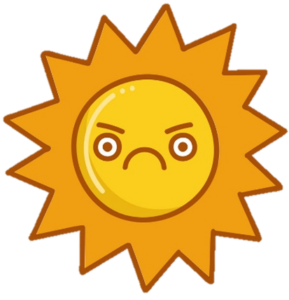 staying Safe In The Sun
staying Safe In The Sun
Staying safe in the sun is very important. Did you know that young people’s skin is much more sensitive to the sun then adults?. So it is important you know how to stay safe and avoid burning.
Spending time in the shade during the sunniest part of the day is the most effective way to stay safe, this is between 11am and 3pm from March to October. Other ways to protect yourself from the sun include:
![]() Always wear sun screen
Always wear sun screen
![]() Cover up with suitable clothing and sunglasses
Cover up with suitable clothing and sunglasses
![]() Drink lots of water
Drink lots of water
Using the right sun screen matters, it is important to use at least SPF 30 (but SPF 50 is recommended for children and young people), as well as ensuring it meets the EU standard which is shown by either UVA in a circle or a 4 or 5 star UVA rating. And don’t forget to check the sun cream isn’t out of date.
Often the problem is that people do not put enough sun cream on, it should be applied evenly and thickly and reapplied regularly throughout the day. Sweating and swimming can cause it to rub off Even if it says ‘once a day’ or ‘waterproof’ it should still be reapplied every 2 hours. For more information on sun screen please visit the NHS website
But what if I’m already burnt? Remember SPAIN when you have sun burn;
![]() Sponge the sore skin with cool water
Sponge the sore skin with cool water
![]() Pain relief such as Paracetamol will help with the pain
Pain relief such as Paracetamol will help with the pain
![]() Apply after sun or aloe vera to the sunburn
Apply after sun or aloe vera to the sunburn
![]() Ibuprofen can reduce the inflammation of the sunburn as well as relieve the pain
Ibuprofen can reduce the inflammation of the sunburn as well as relieve the pain
![]() No more sun until the redness is gone
No more sun until the redness is gone
Heat Stroke
Heat stroke is caused from being in the sun for too long, the body starts to overheat either from the exposure to the sun or from being physically active in the sun. When this happens, symptoms include: tiredness, dizziness, headache, feeling or being sick, fast breathing or heart rate, high temperature, feeling very thirsty or excessive sweating and pale clammy skin. If this happens, you need to cool your body down, to do this: move to a cool place, remove all unnecessary clothing, drink sports/rehydration drink or cool water and cool the skin by sponging with cool water, fan or cool packs. Heatstroke can be dangerous so it’s very important to stay safe in the sun.
How to stay hydrated
- Drink plenty of water.
- Understand the signs of dehydration.
- Check the colour of your urine, if it it dark it may be a sign you are dehydrated.
- Avoid alcohol, sugary drinks, and/or caffeine.
- Eat foods with a high water content.
Why not try out our myth busting quiz
Written by Maddison Mccarney student nurse at Surrey University



Recent Comments